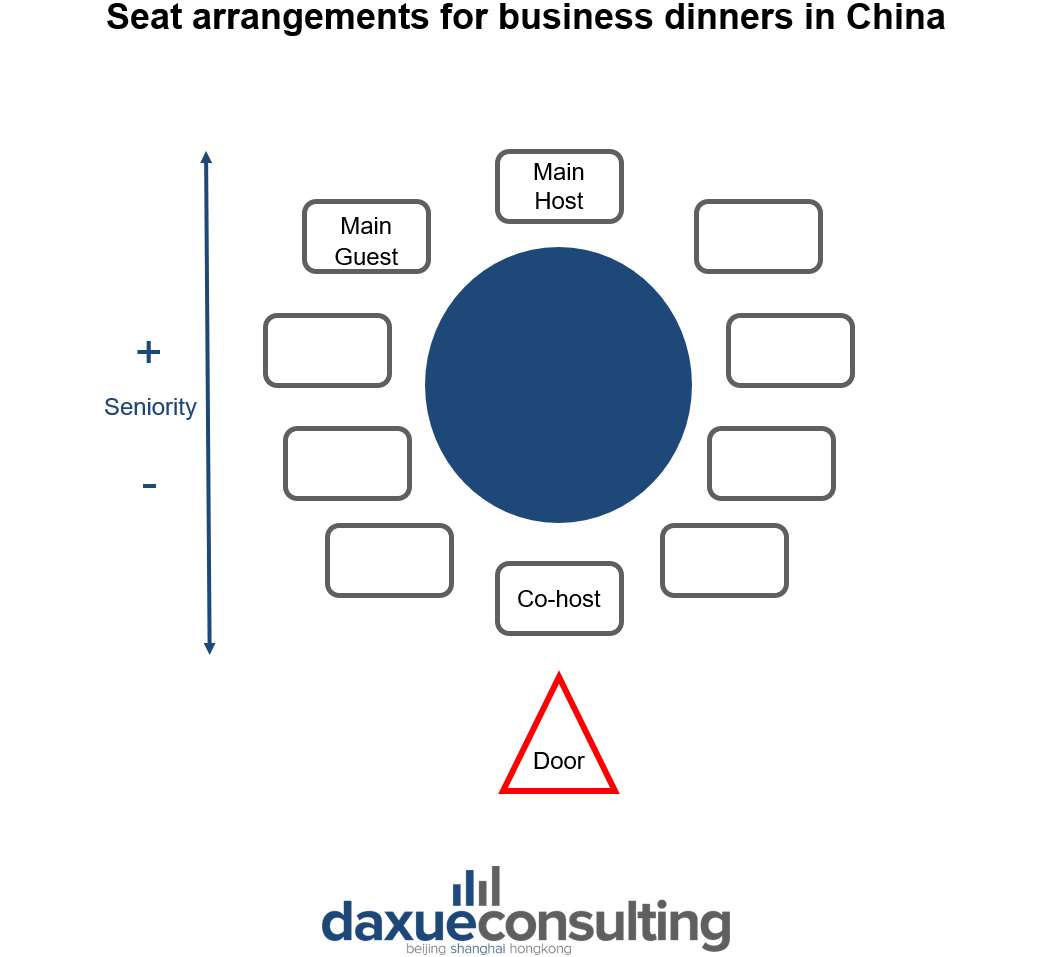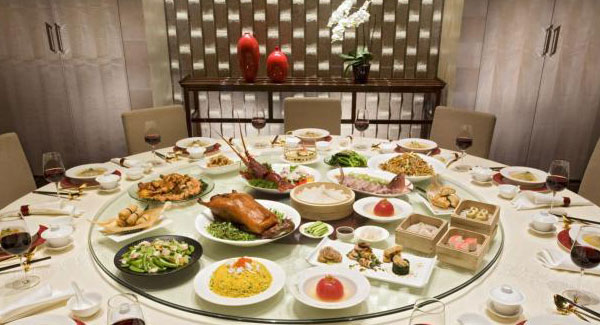It is important to understand and respect the business etiquette in China, as it is deeply rooted in the country’s cultural and social hierarchy influenced by the Confucian tradition. By being aware of and following these customs, one can avoid any unintentional offense towards their Chinese business partners when doing business in China.
1. Know the local culture to make good first impression
The business etiquette in China revolves around important cultural concepts, guanxi (关系), meaning relationship, and mianzi (面子), literally face. Cultivating a relationship means to build trust in each other and this is usually done through long meetings and dinners. The concept of mianzi, instead, can be interpreted as honor.
To navigate guanxi and mianzi in China effectively, it is crucial to make a positive impression on Chinese businesspeople. One key strategy is to seize networking opportunities, such as attending networking events, dinners, and social gatherings, which provide valuable chances to establish connections. Engaging in actual conversations is essential, so it is important to listen carefully, think before speaking, offer constructive feedback, and manage conflicts diplomatically. In case of disagreements, it is advisable to change the topic or address concerns privately and tactfully. Furthermore, gift-giving plays a significant role in Chinese culture, so choosing appropriate gifts that align with the recipient’s interests or reflect the nature of your relationship is important. Finally, while Chinese people are often humble and reserved, they greatly appreciate recognition and acknowledgment of their accomplishments. Offering credit where it is due and expressing genuine appreciation will leave a positive impression.
Do not underestimate the importance of business cards
When meeting for the first time, the introductions will be made in order of seniority, from the most senior member to the youngest one. It is important to follow this order too when introducing yourself. After stating the name and role in the company, it is expected to exchange business cards.
In China’s business etiquette, they are considered an extension of the owner, so disrespecting them equals to insulting the person. In order to avoid any unwanted gaffe, it is important to prepare a business card in advance with Chinese translation on one side and English on the other, to facilitate understanding for our Chinese partners.
Business cards have to be handed out and received with both hands. When offered a business card, do not discard it in any way in front of the giver, but make sure to spend some time reading it, then put it away in a safe place, like a wallet, a purse, never in the back pocket.

The importance of gift-giving in a business context
It is common practice in China to exchange gifts during the first meeting with a business partner, as a way to show willingness to cooperate and to build a good relationship. Selecting an item that symbolizes your home country is recommended, but it is important to avoid anything excessively lavish or pricey, as it may make your Chinese partner feel uneasy and obligated to return the favor.
The etiquette of gift-giving in China
When selecting a gift, it’s important to remember that symbols hold great significance for Chinese people. If deciding to gift flowers, avoid Chrysanthemums, as they are used for funerals. Other taboos in gift-giving are clocks and umbrellas, because what their name sounds like in Chinese have bad meaning. Therefore, such gifts may be misinterpreted as wanting to break off the business relationship.
When giving a gift there is a proper code of conduct to follow and a social hierarchy to respect. If the gift is meant to be for a company or a group of people, then it should be offered to the most senior member of the team. If the intention is to give gifts to more than one person, keep in mind that gifts of similar value should be given to recipients of the same social status within their organization. Chinese people are reserved and may decline a gift out of politeness, so it is customary to offer it up to three times before accepting a refusal.
Another substantial difference with how gift-giving is intended in the West is that gifts are not usually unwrapped in front of the giver. There are many different reasons for this. Some Chinese think unpacking the gift immediately will give people the idea that the present is more essential than giver and that is very impolite. Some Chinese prefer to open the gift in private and the recipient, to avoid embarrassment in case the present does not match the taste of the receiver, and will then either make a call or send a message to thank for the present.
2. Dining etiquette
After introductions are done and some initial discussions have taken place, the hosted team is typically invited to a dinner out in a restaurant, where more in-depth discussions may unfold.
That is when the more substantial business discussions often take place. Indeed, negotiations over a meal are a common and important aspect of business etiquette in China. Be mindful of your language and tone, as these can have a significant impact on the success of the negotiations. It’s also important to be aware of any cultural differences that may affect communication and understanding.
Seating arrangements mirror the companies’ seniority hierarchy
Dinners are organized by the hosting team and are usually carried out in private rooms. Seats arrangements are not casual, but are made following a seniority hierarchy. The most prominent host member takes the seat right opposite the door, then the main guest is expected to sit in the chair on their right-hand side. The other members should take a seat according to their seniority: the younger you are, the closest to the door you should sit. However, the chair in front of the door is occupied by the co-host.

Use chopsticks correctly
Meals in China are supposed to be shared and will be displayed on a round tray called Lazy Susan, which will make it easier for people to reach out to all the dishes on the table. During a business dinner, it is considered rude to use chopsticks to jumble the dishes around in search of a piece you like, so decide on what to take in advance and be careful not to mix the public chopsticks with your personal ones. When using chopsticks, avoid tapping with them on the table or lodging them vertically in a bowl of rice, as it is associated with the practice of burning incense during funerals.

The etiquette of drinking and toasting
Drinking and toasting are important steps in the dining etiquette. The first toast should be made by the main host, who usually also gives a speech wishing for good cooperation and friendly relationships. When invited to clink glasses, it is considered generous for someone to finish it in one go. If the other person is a superior, make sure to raise the glass at a lower height than the senior member’s. To show more respect, you could place the left hand under the glass as well. When offered a drink for a toast, better not decline unless you have a specific reason to do so.
3. Superstitions
Traditional symbols and beliefs hold significant importance in Chinese culture. For instance, numbers may have meanings that differ from those in Western culture.
In Chinese culture, the number 4 is considered unlucky because its pronunciation is similar to the word for “death.” As a result, many Chinese people try to avoid sets or collections of four items. This belief is rooted in the cultural significance attached to numbers and the desire to avoid any association with negative or unlucky connotations. In gift-giving or packaging, it is common to see items presented in sets of three or six instead of four. Additionally, Chinese people tend to perceive brand names that incorporate the number 8 as auspicious. For instance, the name “Super 8 Hotel” resonates positively with Chinese individuals due to the inclusion of the auspicious number.
Similarly, colors like black and white are associated with negative connotations, while red represents good fortune. It’s important to be aware of these cultural associations when choosing numbers and colors in China, but it is also essential to approach these beliefs with cultural sensitivity and respect.
Even though these beliefs were stronger in the past, in a certain degree they are still popular nowadays.
Superstitions on the dining table
Chinese people are very superstitious about the food. Some of the dishes served during business dinners may also carry meaning. If at dinner you find a whole fish, then the head is pointed towards the most distinguished guest, to show respect and to bring good luck to the whole table. The reason is that the pronunciation for the word fish is similar to the word for abundance. On the other hand, if you are the organizer of the dinner, make sure not to serve squid, in particular, do not point it towards anyone, as it means that that person will be fired in the coming year.
Although these traditions are widely used during traditional festivals, like the Lunar New Year celebration, they are often used during business dinners as well.
Tips and tricks for doing business in China
- China business environment highly values traditional cultural practices and the concepts of guanxi and mianzi.
- During the first meeting, introductions will be made in order of seniority and business cards will be exchanged. In China’s business etiquette, business cards are considered an extension of the person, so take some time to read them, before putting them away safely in the wallet.
- Usually, gifts are exchanged during the first meeting, so make sure to prepare one. It would be better to choose a gift from your home country, that is not too expensive nor extravagant. Keep in mind that gifting certain objects like umbrellas or watches is taboo.
- Most of the business talk will be done at the dining table. Take a seat according to your seniority and role in the company and keep in mind that there is a dining etiquette concerning the use of chopsticks and the drinking tradition.
- In Chinese culture, numbers and colors hold significant meaning. The number 4 is avoided as it sounds like the word for “death”, while the number 8 is associated with wealth and prosperity.
Author: Chiara M. Barbera





